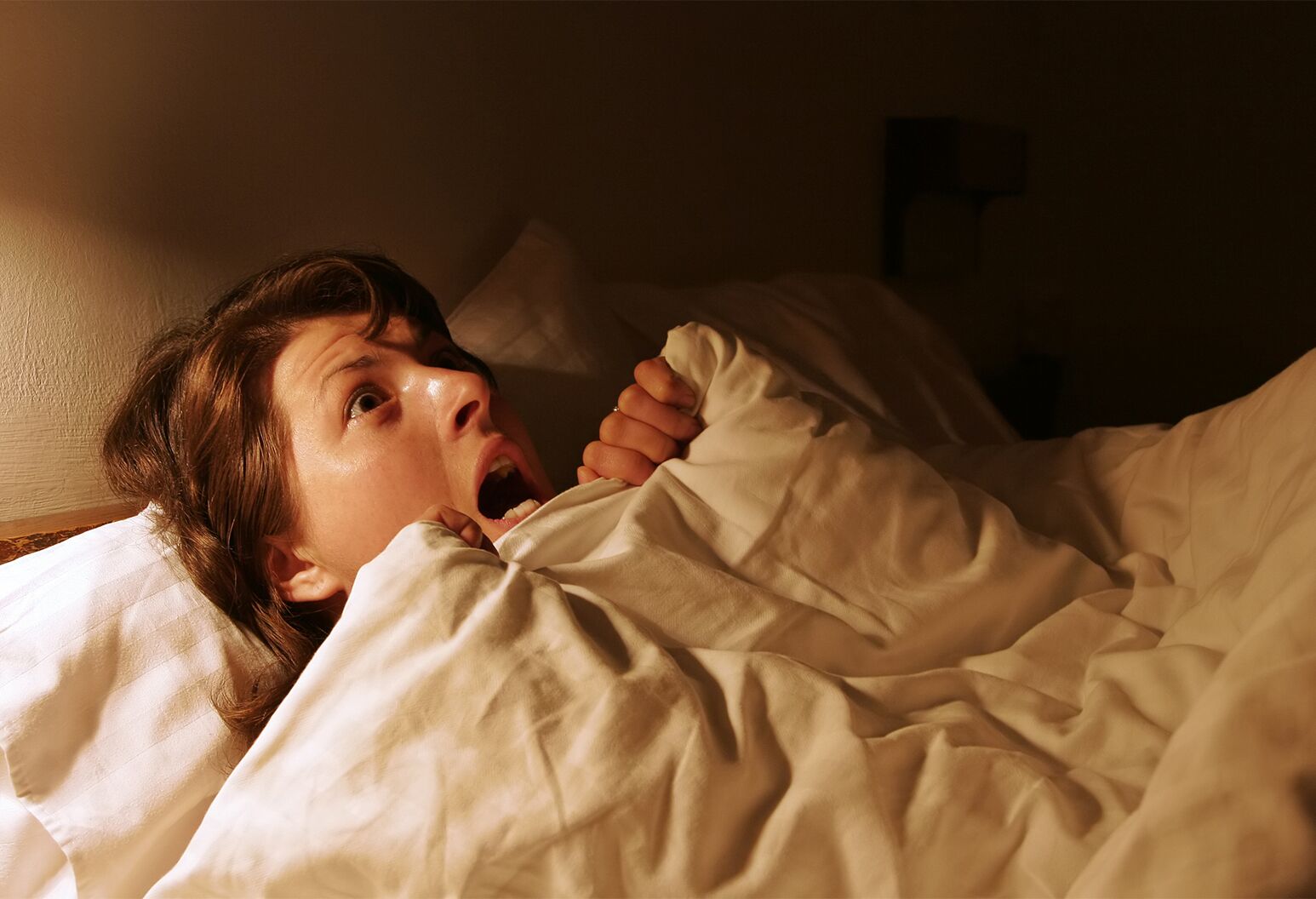What are the Causes of Night Terrors?

Understanding and Managing Frightening Sleep Events
Night terrors go far beyond typical bad dreams. When someone experiences a night terror, they’re caught in a state between sleeping and waking that can be terrifying for both the person experiencing it and those witnessing it.
Understanding Night Terrors
More Than Just Nightmares
During a night terror, the brain becomes caught between sleep stages:
- Intense fear response activation
- Partial awakening from deep sleep
- Fight-or-flight response triggering
- Confusion and disorientation
- Limited awareness of surroundings
Common Causes
What Triggers These Events
Several factors can contribute to night terrors:
Physical Triggers
- Sleep deprivation
- Irregular sleep schedules
- Fever or illness
- Sleep apnea
- Certain medications
Psychological Factors
- Chronic stress
- PTSD
- Anxiety disorders
- Emotional trauma
- Major life changes
Environmental Elements
- Disruptive sleep environment
- Temperature extremes
- Noise disturbances
- Light pollution
- Unfamiliar surroundings
The Brain During Night Terrors
Understanding the Neural Storm
Night terrors involve specific brain areas:
Brain Regions Affected
- Amygdala (fear center)
- Hippocampus (memory processing)
- The prefrontal cortex (consciousness)
- Brainstem (arousal)
- The limbic system (emotions)
Sleep Recovery’s Approach
Calming the Neural Storm
Sleep Recovery’s neurofeedback program specifically targets night terror patterns:
Treatment Focus
- Brain wave pattern normalization
- Sleep stage transition smoothing
- Fear response regulation
- Arousal level management
- Sleep architecture stabilization
The 15-session program helps:
- Reduce terror frequency
- Decrease intensity
- Improve sleep quality
- Build emotional resilience
- Restore natural sleep patterns
Personal Stories
Meet Sarah, who suffered night terrors for years: “I’d wake up screaming, drenched in sweat, my heart racing. My partner was terrified. Sleep Recovery’s neurofeedback helped calm my brain’s overactive fear response. Now I can sleep through the night.”
James shares: “After military service, night terrors became a nightly occurrence. The program helped me understand it wasn’t just nightmares – my brain needed help transitioning between sleep stages properly.”
Impact on Daily Life
Beyond the Night
Night terrors affect more than just sleep:
- Daytime anxiety
- Relationship strain
- Work performance
- Social isolation
- Physical exhaustion
Warning Signs
Recognizing Risk Factors
Watch for:
- Increasing stress levels
- Sleep pattern changes
- Emotional overwhelm
- Physical illness
- Medication changes
Treatment Options
Finding What Works
Effective approaches include:
- Neurofeedback therapy
- Sleep hygiene improvements
- Stress management
- Environmental modifications
- Support system development
Special Considerations
Unique Situations
Different groups face unique challenges:
Children
- Developmental factors
- Family dynamics
- School Impact
- Social Concerns
- Treatment adaptation
Adults
- Work responsibilities
- Relationship effects
- Safety concerns
- Treatment compliance
- Long-term management
Frequently Asked Questions
Q: Can night terrors be cured? A: While not “cured,” someone can be effectively managed with proper treatment like neurofeedback.
Q: Are night terrors dangerous? A: While frightening, they’re generally not physically dangerous, though injury prevention measures may be needed.
Q: How does neurofeedback help? A: It helps regulate brain patterns involved in sleep stage transitions and fear responses.
Q: Will my child outgrow night terrors? A: Many children do, but treatment can help during active phases.
Q: Are night terrors related to trauma? A: They can be, but many other factors can also trigger them.
Prevention Strategies
Building Better Sleep
Key approaches include:
- Regular sleep schedule
- Stress reduction
- Healthy sleep environment
- Trigger awareness
- Support system development
Conclusion
Night terrors might feel overwhelming, but understanding their causes and having access to effective treatments like Sleep Recovery’s neurofeedback program can make a significant difference. Whether you experience them yourself or support someone who is, remember that help is available.
References
- Sleep Terrors: An Updated Review. https://pmc.ncbi.nlm.nih.gov/articles/PMC8193803/#:~:text=Results,exact%20etiology%20is%20not%20known.
- An evolutionary perspective on night terrors. https://academic.oup.com/emph/article/2018/1/100/4971513
-
Harvard Medical School: Nightmares and the Brain. https://hms.harvard.edu/news-events/publications-archive/brain/nightmares-brain
- Science Direct: Night Terrors. https://www.sciencedirect.com/topics/psychology/night-terror
Night terrors don’t have to control your life. With proper understanding and treatment, peaceful sleep is possible.
